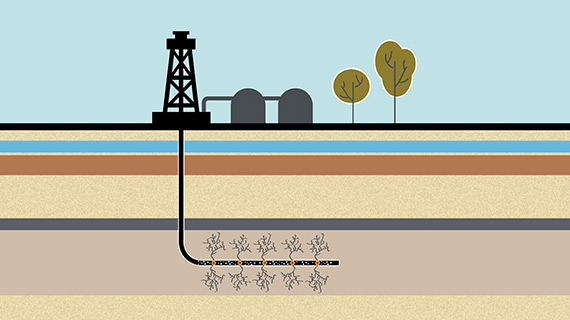
Sociology Summer Internship – Anti-fracking protest in the UK
By John Bambury
When I was first told I would be working on a research project over the summer for the sociology department I was filled with a lot of questions and emotions. Apart from the obvious joy which came with selection, I bore a deep feeling of dread. Was I up for the challenge or would I just betray the trust that the department and staff had placed in me? Would I be chucked in the deep end and figuratively left to drown? In the following ten weeks I discovered that with the help of other staff members and a lot of hard work that this was going to a project I wouldn’t forget.
I applied in late spring to be an intern for Dr Ogilvie as part of his research into the anti-fracking movements that had sprung from local communities all over Kent and the rest of the U.K. It looked like a massive task that would be well beyond my level of experience, expertise and education. It wasn’t. Dr Ogilvie showed me the ropes and explained in the highest detail the work and the theories which would become my working life at Christ Church. At first I was set to work complying long lists of books and journals that would make up the background literature for the project. The main focus of the task was to research groups who held N.I.M.B.Y. (Not In My BackYard) views. N.I.M.B.Y.s generally are made out to be groups or individuals who don’t want institutions and industry’s (e.g. Wind farms, HIV/AIDS clinics, Fracking well etc…) near their homes but do not oppose their creation somewhere else (Oxford Dictionaries, 2014). As I was to learn anti Fracking protesters shouldn’t be classed as such but more so as a competing group within social movement theory who don’t wish to have the industry used anywhere.
The people who hold these views are classed as part of N.O.P.E (Not On Planet Earth). For the next few weeks I researched the groups in the county and coded the messages and phases used to get an idea of what they were fighting against, why they had chosen to protest and how they when about the task they had set for themselves plus the defence of fracking that local and national government as well as the fracking industry and national newspapers was making. As I coded more and more of the protesters Facebook posts and points I could see the clear distinction between the N.I.M.B.Y.s and the N.O.P.E. groups, who resisted unconventional energy development around the world via the messages of solidarity and support to those who were standing up to the industry which planned on utilising methods of oil extraction which would destroy the ecosystems and poison our water supplies for a temporary solution to the energy crisis the country (and world) is currently facing in addition to the profit gained from this venture (Frack off, 2014).
This internship has been an amazing experience where I have met and engaged with a group of committed ecological activists, gained a lot of confidence in my abilities and have been taught a large range of skills and knowledge, which will help me greatly in my last year at uni and post graduate life. I would thank the sociology department for this chance and recommend everyone to apply next year for one of these internships. I know I will be.
“This internship has been an amazing experience where I have gained a lot of confidence in my abilities and have been taught a large range of skills and knowledge, which will help me greatly in my last year at University and post graduate life.”
John’s internship involved researching socio-political controversy over fracking (hydraulic fracturing) in the UK. Working closely with Dr Matthew Ogilvie, John was involved in the systematic analysis of anti-fracking activist opinions and beliefs. John’s internship was extended due the quality of his work and the ongoing research project. John is currently employed within the University.